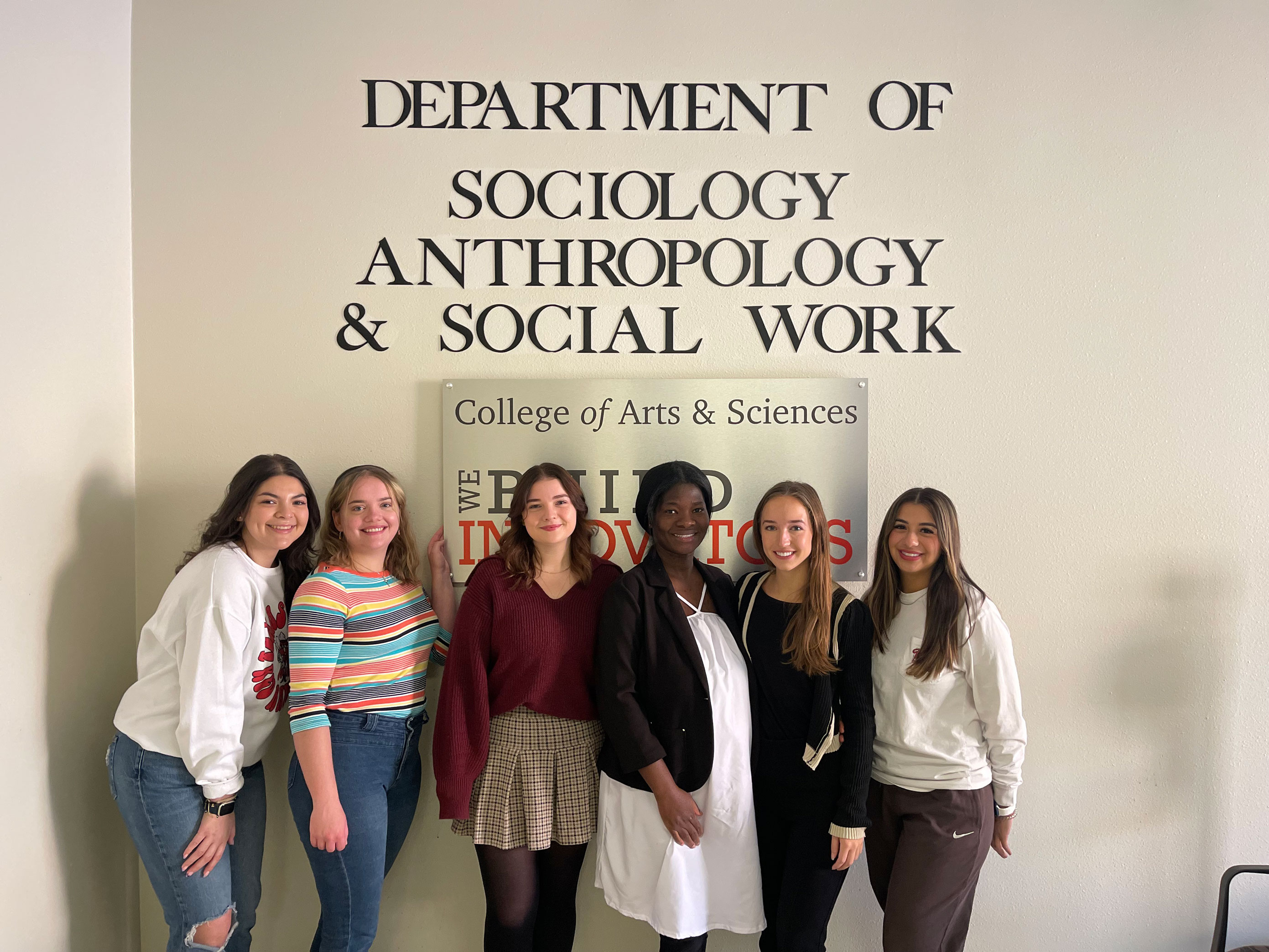Cynthia Phelps and Andrew Rose assist graduate students in gaining experience as they prepare to become licensed clinical social workers.
In a part of Texas where mental health resources are often scarce, Cynthia Phelps and Andrew Rose are working with Texas Tech University students to help fill the gaps.
Phelps is an assistant professor and Rose is an associate professor in the Department of Sociology, Anthropology & Social Work within the College of Arts & Sciences. Together they help coordinate a program that provides graduate students with hands-on
experience.
“What we are really focused on is trying to provide mental health services to children,
adolescents and families,” Rose said. “We’re doing that primarily in rural communities
where there is a lack of services and where there can be challenges to providing services
to people in those communities.”
The initiative trains future mental health professionals and is overseen by the Department
of Psychiatry at the Texas Tech University Health Sciences Center.
“We have students come into our program, some of whom have received social services
in their lives, so they come in prepared for a challenge and step up to it,” Phelps
said of those enrolled in the program. “Some of them are first-generation students,
and we are able to support their needs with the goal of every student being successful.”

The program is funded through Senate Bill 8, which directed federal funding available
through the American Rescue Plan Act (ARPA) to the Texas Child Mental Health Care
Consortium (TCMHCC) with the goal to provide expanded mental health programs for children,
pregnant women and women up to one year postpartum. The initiative is now in its third
year.
Clients are seen via the Texas Child Health Access Through Telemedicine (TCHATT).
The TTUHSC has long been a pioneer in telehealth, using technology to deliver health
care resources to those in rural areas where there are few providers.
Students also are involved in the Southwest Initiative for Addictive Diseases, an
addiction and recovery program, and the Relational Health Center, a children’s mental
health program that is a partnership between Covenant Health and TTUHSC. Referrals
to the programs will often come through a local school district or family practitioner.
Together, the programs give Texas Tech students an array of opportunities to work
with clients and other providers in a practical setting where they can apply knowledge
and learn from more experienced people on the team.
For students pursuing a master’s degree in social work and an eventual career as licensed clinical social workers, the program gives them
the opportunity to work in clinics as part of a multidisciplinary team, where they
gain knowledge and practical experience.
“This is a wonderful opportunity for our students, who also get class credit for this
field placement,” Phelps said. “Our students get invaluable experience working with
psychiatrists, psychiatric residents, nurses, nursing students, psychologists and
doctoral psychology students. They all work together to help the citizens of West
Texas.”
The field placements dovetail nicely with the mission of the Master of Social Work
program to develop critical thinkers and self-directed learners. Students in the program
work in the field 20 hours per week while also handling academic expectations in the
classroom.
Primarily, the students assist during assessments with their observations overseen
by the senior members of the team.
“I really appreciate the Texas Tech University Health Sciences Center for being such
a collaborative partner,” Phelps said. “They placed a lot of trust in Andrew and in
our program, and that speaks very highly of them. Students are supplying supportive
resources to clients on the other end of the camera. They are assisting. Maybe they
are seeing a child who has a mental health diagnosis or other stressors going on that
impact the child’s functioning abilities. It could be a variety of things from food
needs to mental health needs of other family members.
“Our students are there as part of the team to assess those needs and help connect
clients with other support systems.”
The students are being exposed to virtually every aspect of mental health across the
spectrum, assisting with group therapy, assessment intake, counseling, discharge planning
and helping families coordinate follow-up care and management.
The training is vital in terms of their chosen career path. In Texas, licensed clinical
social workers are able to diagnose and treat mental health the same as a psychologist
is able to diagnose and treat and they are able to work independently.
That will come later, but for now students landing field placements like these have
a front-row seat for what could be on the horizon.
“They are on a positive trajectory,” Rose said. “When you look at the programs in
which they are involved, the focus is the mental health of adolescents, children and
families. That’s the focus of what they’re doing now.”
During the course of their field work, students receive a perfect mix of classroom
teaching and clinical experiences that prepare them for the challenges of the professional
road that lies ahead.
“When we look at the training they receive, it is amazing the experience they gain
as part of this grant,” Rose said. “They are going to go out from here and change
the world. This training helps springboard them into their profession and their career,
while filling a void. All of this is so important.”
The multidisciplinary effort is one more way Texas Tech is not only identifying challenges
but also responding to them in bold and innovative ways.
“I am so excited for the future,” Rose said. “I am excited about the good things that
are happening in the here and now. We are always looking for more opportunities and
educational experiences for our students to have that lead to this success. This program
is a wonderful way in which that is being manifested.”

